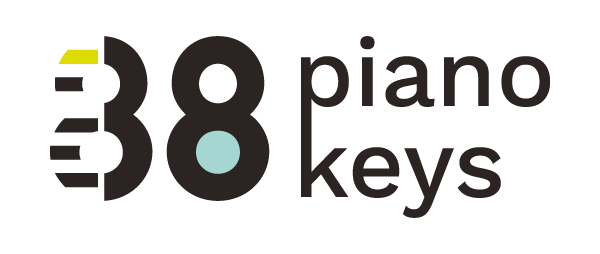One App at a Time: SightReadingMastery.com
 Why are some people SO good at sight reading while others struggle with this skill? Won't go into details but it is connected to processing and how fast the brain can send messages to the fingers. Some are wired for it, some are not--I say that not as an expert, just as an observer of my current students and past memories. Although I was OK at reading , it never came as quickly to me as it did for Julie, Nancy or Kim (other pianists from my childhood). They garnered plenty of attention because it appeared they could read and play at sight pretty much anything.
Years later, I'm pleased to say my sight reading skills have increased tremendously (not quite as good as my good friend and colleague, Cathy) but they are commendable. Why? Around 9 years ago, I was hired as a full-time church organist and accompanist. Preparing new repertoire and choir anthems each week honed my sight reading.
Why are some people SO good at sight reading while others struggle with this skill? Won't go into details but it is connected to processing and how fast the brain can send messages to the fingers. Some are wired for it, some are not--I say that not as an expert, just as an observer of my current students and past memories. Although I was OK at reading , it never came as quickly to me as it did for Julie, Nancy or Kim (other pianists from my childhood). They garnered plenty of attention because it appeared they could read and play at sight pretty much anything.
Years later, I'm pleased to say my sight reading skills have increased tremendously (not quite as good as my good friend and colleague, Cathy) but they are commendable. Why? Around 9 years ago, I was hired as a full-time church organist and accompanist. Preparing new repertoire and choir anthems each week honed my sight reading.
Over the years, I've found there are four essentials that enhanced my reading skills:
1) Expertise in theory, chords and rhythm.
2) The ability to improvise and see the "big" picture.
3) Listening to recordings of the repertoire to be played . (I know sight reading means playing things on the spot without hearing or seeing it before, however, when playing open scores, hearing the piece first definitely aids the reading.)
4) Reading new print music on a regular basis.
Recently, Evan R. Murphy contacted me about his online endeavor SightReadingMastery.com. Always on the lookout for tools to reinforce reading skills for my students, I was happy to take a look at his site. Usually, I write about apps that are designed specifically for the iPhone or iPad. However, I've included this post in my "One App at a Time" series as this falls under the definition of an app or application: "Could be thought of software sold as a units or small portions". *See definitions of "apps" below.
The key components of SightReadingMastery.com include:
1) Professionally composed music which provides never-before-seen pieces of music.
2) Selections are provided in 3 levels of difficulty. Details on which elements are included at each grade can be found at sightreadingmastery.com/piano.
3) Every piece comes with high-quality audio playback of a correct performance. Murphy states with this feature "you can listen to each one after you sight read and use your ear to catch mistakes before they become habits."
4) Progress can be tracked by a sight reading log. According to Murphy, "this allows the reader to revisit past exercises anytime to hone in on your problem areas and work them out."
While Browsing the site, this is what I uncovered:
*A clean page from which to read each excerpt.
*The first level already includes key signatures, articulation signs, dynamics so the site is definitely geared towards late elementary or higher level students.
 *100's of new sight reading material a finger-tip away.
*100's of new sight reading material a finger-tip away.
*Compositions by professional composers, very similar in appearance to typical classical repertoire.
*An audio recording of each piece which serves well for reference--before and after sight reading the piece.
*A log to track every piece that has been read.
*This is iPad friendly, after accessing the site on my iPad --I found it worked much more easily on the piano rack vs the lap top.
Some things I was hoping to find:
*It would be good to have a chart listing the elements to be found in each level at the site.
*A level limited to the key of C without articulations and dynamics for early readers was not available--perhaps a primer level could be added in the future?
*It seems there is quite a range of difficulty within each level.
*Although a "correct" audio recording is provided, a valuable addition to the site would be an option to record performances so that the sight reader can compare and contrast the correct and the attempted performance.
*If there was some way to tally how many mistakes were made in each reading, it would provide more meaningful feedback to the sight reader. At this point there is no concrete data to show if progress has been made other than by self (or teacher) observation.
*Musical excerpts seem to replicate mostly classical styles with perhaps a few jazz and pop selections.
*Online is handy but an iPad app is even better as there would be no need for Wi-Fi.
Cost
SightReadingMastery.com allows you to try it for free for 7 days or provides these purchase plans:
- Do: $19/month for 35 sight readings per month: "A Line a Day"
- Re: $29/month for 100 sight readings per month "Most Popular"
- Mi: $79/month for 300 sight readings per month "For Teachers & Studios BETA"
*******
Leila's Opinion of SightReadingMastery.com ($19-$79/month)
Application Potential: 4/5 The intention to promote the art of sight reading is a noble cause and this site provides two out of the four "essentials" I listed above: listening to and reading new music. The lack of concrete progress scores may keep this site from being as motivating as you might prefer, especially for younger students.
Ability to Use with Ease: 5/5 The site is straight forward, clean and easy to use with professionally composed pieces.
Assessment of Investment: 4/5 A library of new music is at your finger tips for a substantial fee. However the flexibility with purchase makes this an affordable option for those looking for fresh sight reading material.
Note: Evan R. Murphy, CEO, was receptive to my observations. It is clear that he cares and wishes to continue his efforts to develop this site (app) as a highly valuable tool for building sight reading skills. I look forward to what's to come.
Total Score: 13/15
*******
*So, what are apps? (see the entire article at ComposeCreate.com)
- A slang term for an iPhone or iPad application
- “Apps” doesn’t fall far from the “Apple” tree (joke intended)
- Could be thought of software sold as a units or small portions

